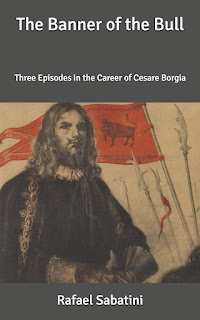I was wondering if you could recommend some of the best books on history that I should read.
Here was my reply:
Dear A -------,
You raise an interesting question. A key element would be the type of history you're looking for. The fellows interested in, respectively, the history of philosophy or ancient Rome or World War II are, most likely, going to be reading different historians. Thus, my favorite guys will tend to cover the areas of history I'm most interested in.
Another factor is that some of my favorite history books are not written by professional historians at all. A speech writer (Peggy Noonan) wrote my favorite history of the Reagan administration; a soldier wrote my favorite history of the American Civil War (Ulysses Grant); and my favorite histories of the U.S. space program were written, respectively, by two scientists and a novelist (Chris Kraft, Gene Kranz, and Tom Wolfe).Another category similar to the above is the autobiography. Those can certainly be classified as history but few are penned by professional historians.
Novelists and playwrights can also serve as excellentchroniclers of history, usually of their own times, but certain writers dip expertly into other eras and write historical fiction that is of immense value. Especially appreciated in this latter category are Dickens, Scott, Tolstoy, Dumas, Hugo, Cooper, Austen, Dostoevsky, Waugh, and the Brontes.
So, if you can keep all of these things in mind, I will mention a few "professional" historians that have made the top rank for my interests and purposes. I'm quite sure I'll leave a couple out, but here's some names I'm thinking of right now (without classifying them as to time or subject): Shelby Foote, Samuel Eliot Morison, Walter Lord, John Toland, David McCullough, Antonia Fraser, Roland Bainton, Paul Johnson, Stephen Ambrose, Bruce Catton, William Prescott, Basil Liddell Hart, Laura Hillenbrand, and Alexander Solzhenitsyn.
Of course, there's a whole lot more to talk over than this quick list -- including your input about topics, people, periods of history you're most interested in. So, why not give me a call or zip along an e-mail telling me what day next week would be best for lunch where we can discuss it further? I'll look forward to it.Denny








































